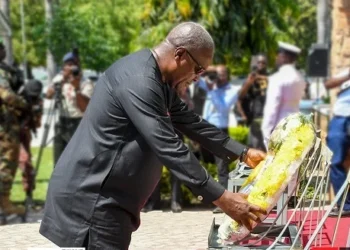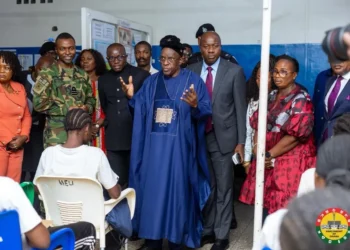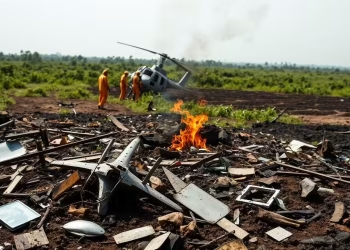Legal practitioner Vicky Bright has issued a forceful call for accountability and decisive action following recent military incident that resulted in multiple deaths, warning that Ghana‘s persistent failure to enforce responsibility is crippling national progress.
Speaking on JoyNews’s Newsfile on November 15, 2025, she argued that the tragedy is not an isolated failure but a symptom of a deeper cultural problem in which impunity has become embedded across our institutions.
Follow The Ghanaian Standard channel on WhatsApp for the latest news stories from Ghana.
Vicky Bright described the absence of accountability as a condition that “permeates across all systems that we have,” insisting that the country is regressing because “people get away with far too much.”
She noted that attempts to reform these systems face active resistance, with many preferring “business as usual” and even fighting those “trying to bring positive change into the system.”
In her view, Ghana must become a more principled society where individuals take responsibility for their actions.
On consequences for those responsible for the deaths, Ms Bright took an uncompromising stance. She said the officials involved should not wait for public agitation or political manoeuvring but must either resign or be removed from their positions.
“You either go voluntarily or you’re fired,” she stressed, adding that it is a moral duty for leaders to “look at these poor kids who have died and resign,” especially since many of them also have children.
Addressing potential legal remedies, Ms Bright acknowledged that a class-action lawsuit against the military is legally possible under public liability provisions and insurance requirements.
However, she described such a move as “a bit problematic,” arguing that litigation should not replace principled accountability and internal responsibility within state institutions.
Ms Vicky Bright strongly advocated for substantial monetary compensation for the bereaved families, saying financial support is essential even though no amount can “bring them back.”
She referenced the case of one young victim who had been the primary caregiver to her ill mother in a home without a father figure, emphasising that her death has left her mother without support. This, she said, illustrates why compensation cannot be overlooked.
She welcomed President John Dramani Mahama‘s gesture, inviting each bereaved family to nominate one person to join the army, calling it “a good thing,” but made clear that it is not a substitute for direct financial compensation.














